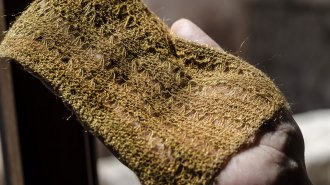Nanotube implants could aid brain research
To probe the mysteries of the mind and restore brain function in patients suffering from trauma or disease, researchers have been developing various implants that can record and stimulate neural activity. Because these probes are typically made of silicon, however, scar tissue forms on such an implant, creating a barrier between the device and brain cells.
Implants made from electrically conducting carbon nanotubes could offer a safer and more effective alternative to silicon, according to a group of biomedical engineers at Purdue University in West Lafayette, Ind. Led by Thomas Webster, the researchers fabricated a new implant material by mixing multiwalled carbon nanotubes–sheets of graphite rolled into concentric cylinders–with a polymer already used in some surgical implants.
To test the suitability of the material for implants, Webster’s team placed coin-size samples of the polymer-nanotube material in petri dishes with either astrocytes, which are cells that form scar tissue, or nerve cells. The material not only significantly reduced the formation of scar tissue, but also stimulated contact with nerve cells by inducing them to grow fingerlike extensions. The findings appear in the January Nanotechnology.
The implant developers attribute the cell-morphing and scar-shunning effect to the material having no more than nanometer-size bumps, which mimic the natural surfaces of proteins and tissues. Conventional probes typically have larger defects, which the body perceives as foreign.
****************
If you have a comment on this article that you would like considered for publication in Science News, send it to editors@sciencenews.org. Please include your name and location.







